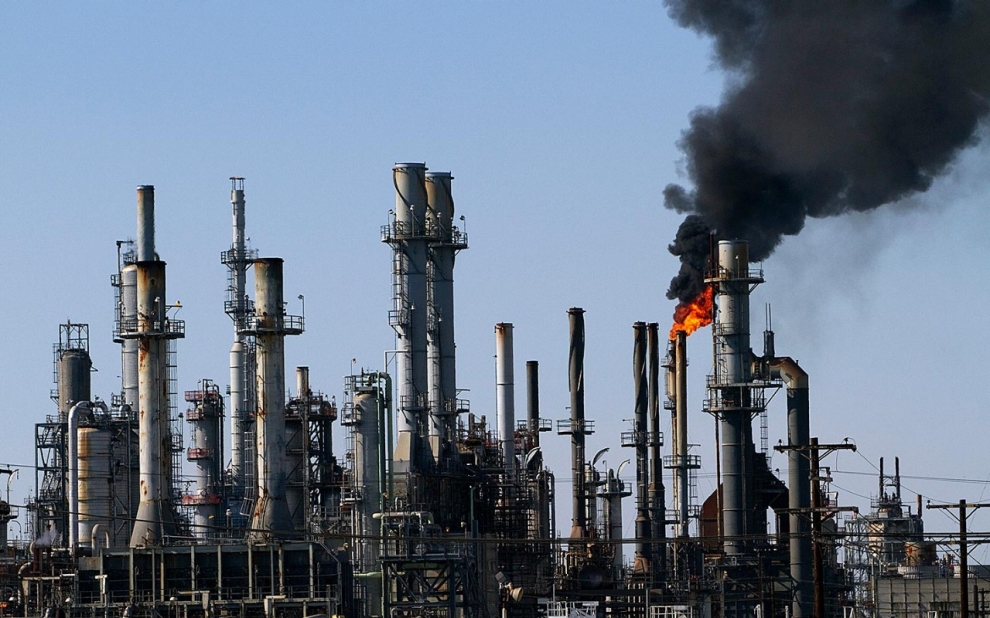Oh, the irony! Efficiency bill stalls

Energy, as a topic for policy, debate and legislation, seems pretty central to future plans for the United States, and for the parties that vie to rule it. So, pop quiz, how many energy bills have come up for a Senate vote during the Obama administration?
The bipartisan Shaheen-Portman Energy Savings and Industrial Competitiveness Act, which is set for a cloture vote later today, is the first energy bill to see debate in the Senate since 2007, and it will likely fail [update: it did fail — a tad more below] to clear this procedural hurdle for reasons that are typically tedious in the aggregate, but a tad more interesting in the specific.
Attempts were made last week to negotiate a deal that would include an up-or-down vote on the efficiency bill in exchange for a vote on standalone legislation designed to leapfrog the executive branch and push approval of the controversial northern leg of the Keystone XL pipeline.
But the GOP, it appears, would rather lump the KXL vote into the efficiency bill as an amendment. Republicans are also reportedly seeking at least four other amendments, including ones that would curtail EPA regulations on new power plants, permanently oppose a carbon tax, and fast-track liquid natural gas (LNG) exports to countries that do not have free-trade agreements with the U.S.
If passed (and they won’t be, as Senate Majority Leader Harry Reid, D-Nev., has reportedly said no to the GOP amendment package), the Republican riders would kneecap even the most halting steps toward a responsible U.S. response to climate change. The restrictions on carbon regulations hurt for obvious reasons, but the moves on Keystone and upping the export of LNG are more insidious, and have the potential to be far more damaging.
Opening a fatter pipeline to Canadian tar sands has already been tagged as a potential climatological disaster. The crude from that region is more carbon-laden than most of what the U.S. currently refines, and the process for extracting and moving that oil is more greenhouse gas intensive.
Also, as KXL watchers note, most of that oil is targeted for export, not domestic consumption.
The overseas market is, of course, also the key focus of the amendment on LNG exports. The fracking boom has made natural gas cheap and plentiful in the U.S. — so much so, that domestic drillers are hot to stoke foreign furnaces, with an eye toward not only selling more, but driving up demand, and so, driving up the price.
Which again, itself, has a multiplier effect: Higher prices encourage more and more exploration and extraction, which in turn creates the need to find new markets to sustain the boom.
The recent IPCC report on climate change surmised that if the world is to meet its perilously modest goals of limiting global average temperature increase this century, roughly 80 percent of the world’s known hydrocarbon reserves need to stay in the ground.
That bears repeating: Burn more than 20 percent of what we already know is there, and the climate will warm to catastrophic levels.
So, with an eye to global health and national security, the goal of any national energy program should be to slow the growth in demand for greenhouse gas-intensive fuels. Which brings the focus back to the legislation at hand.
As efficiency bill cosponsor Sen. Jeanne Shaheen, D-N.H., has noted, “The cheapest energy is the energy we don’t use.” That would be cheapest to the consumer, most definitely, and also less costly to the environment.
Which is why environmentalists usually lead with conservation and efficiency when talking about responsible energy strategy. But it is also why bills like Shaheen-Portman — and the ideas behind it — have such a hard time in Congress. There is money to be made selling energy. Less obvious is how there is money to be made saving it.
. . .
That final point deserves an instant footnote: There is money to be made in building more efficient communities and transmission systems, as there are for many conservation and renewable energy initiatives, but for now, that money focuses more on construction and manufacturing. While that kind of investment should create more jobs, it likely creates less concentrated wealth — and less concentrated wealth tends to result in more disparate lobbying.
And that should raise another caution: While the Shaheen-Portman bill is deemed bipartisan, the support for expanding domestic production and foreign export of natural gas is, too. The climate-threatening GOP amendments might fail to move today, but that is not to say that there won’t be efforts from both sides of the aisle to accomplish some of the same goals sometime in the future.
Update (6:45 p.m.): As expected, Shaheen-Portman has failed to clear the 60-vote threshold needed to limit debate and move to an actual vote on the bill itself. According to the AP, the motion fell five votes short.
. . . .
Any views expressed on The Scrutineer are those of the author and do not necessarily reflect Al Jazeera America's editorial policy.




























Error
Sorry, your comment was not saved due to a technical problem. Please try again later or using a different browser.